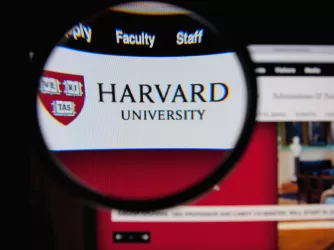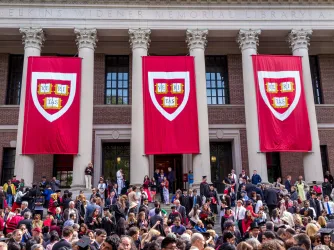Table of Contents
Speech Code of the Month: University of Missouri–Kansas City

FIRE announces our Speech Code of the Month for February 2017: the University of Missouri–Kansas City.
The university calls its demonstration policy the “Open Campus and Time, Place and Manner Policy,” but in reality, the university’s campus is far from open for students wishing to engage in expressive activities.
According to that policy, which applies to “all rallies, demonstrations or similar activities,” “all events shall be registered through the Office of Student Involvement at least ten working days before the event by completing the permit request form.”
Ten days’ prior approval for all rallies and demonstrations? That is absurd — and almost certainly unconstitutional. While the First Amendment allows public universities to enact reasonable time, place, and manner restrictions, that is a narrow exception that does not give universities carte blanche to regulate student demonstrations. Rather, courts have held time and again that to be considered lawful, “time, place, and manner” restrictions must be content-neutral and “narrowly tailored” to serve a significant governmental interest, leaving open ample alternative channels for communication. (See the Supreme Court’s 1984 case, Clark v. Community for Creative Non-Violence.)
Moreover, the waiting period also clearly violates Missouri’s Campus Free Expression Act, signed into law in 2015. That law allows institutions to maintain reasonable content- and viewpoint-neutral time, place and manner restrictions but expressly states, “Any such restrictions shall allow for members of the university community to spontaneously and contemporaneously assemble.”
While UMKC couches these restrictions in terms of the need to preserve the “learning environment,” the learning environment is not threatened by spontaneous expressive activity so long as protesters abide by reasonable rules prohibiting demonstrations from interfering with critical university functions. And indeed, UMKC’s policy already contains just such rules: It prohibits student protesters from disrupting university operations, blocking the free flow of students to and from classes, engaging in disorderly conduct, and so forth. So why does the administration still need ten days’ advance notice prior to allowing students to speak their minds?
It doesn’t.
These types of restrictions are deeply harmful to free speech on campus, because demonstrations are typically spontaneous responses to unfolding events and the impact of their message depends in large part on immediacy. For example, I wrote last month about the protests that broke out at airports around the country following President Trump’s executive order on immigration, and how those protests would have been hampered — and their impact greatly diminished — by the kinds of protest waiting periods and pre-registration requirements that are all too common at colleges and universities.
Waiting periods of any length are troubling. Schools need to make some allowance for students to engage in spontaneous expressive activities on campus. Typically, though, the protest waiting periods we complain about are on the order of two or three days—ten days is extreme even by campus speech code standards. For this reason, the University of Missouri–Kansas City is FIRE’s February 2017 Speech Code of the Month.
If you believe that your college’s or university’s policy should be a Speech Code of the Month, please email speechcodes@thefire.org with a link to the policy and a brief description of why you think attention should be drawn to this code. If you are a current college student or faculty member interested in free speech, consider joining the FIRE Student Network, a coalition of college faculty members and students dedicated to advancing individual liberties on their campuses.
Recent Articles
FIRE’s award-winning Newsdesk covers the free speech news you need to stay informed.

Revoking Harvard’s tax-exempt status will threaten all nonprofits

Grandpa’s advice for the new wave of American censors

FIRE POLL: Only 1/4 of Americans support deporting foreigners for pro-Palestinian views
